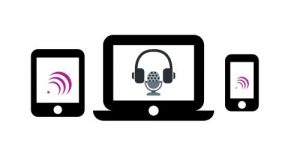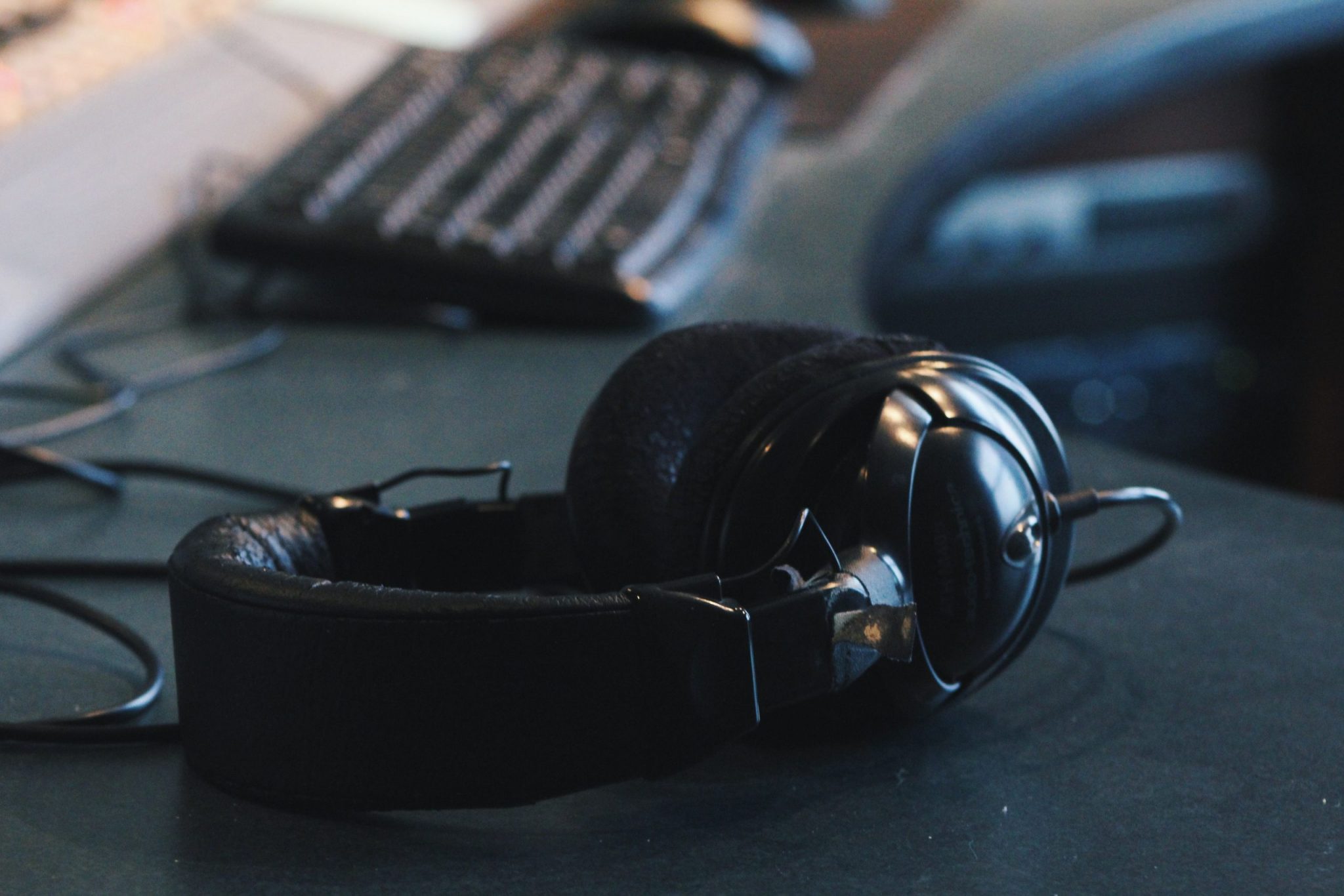Podcasts: A Very Basic Guide for Beginners
Words by Crystal Hammon.
155 million Americans listen to podcasts regularly. What about you? Maybe you’ve never listened to a single podcast. Nothing surprising about that. Especially if you’re over the age of 55. Eighty percent of Americans who make podcasts part of their daily life are younger than that.
This demographic data is one of the reasons Classical Music Indy launched two new podcasts in 2019 and a third in 2020.
“We really want to meet listeners where they are,” says Classical Music Indy CEO Jenny Burch. “Podcasts help us reach young people who may not consume classical music the way audiences have in the past. The shows we’re creating may introduce new people to the genre, but they have universal appeal. Even the most devoted classical music fans will find something new to learn within the content.”
This post is for anyone who might benefit from a very basic guide to podcasts. If you’re already podcast savvy, please recommend one of our podcasts. We’ve got some amazing hosts who’ll get you hooked on listening to classical music in ways you never have before.
Read on to learn what a podcast is, how it differs from radio, and how you can find and listen to podcasts that interest you.
Introduction to Podcasting
Yesterday’s blog is today’s podcast, a form of audio content that has proliferated to the point that Americans can now choose from over 1,000,000 podcasts.
The first American podcasts were founded in the early 2000s. At that point, newish technology made it easy (and affordable) for anyone to record audio and upload it to a website where people could play it back live from the site. (This method of listening is called streaming. The other way to listen is to download an episode of a podcast and play it whenever you want. More about this later.)
Podcasts are used to educate, entertain or inform. Practically anyone can create podcast content about any topic. Faith, politics, hobbies, special interests, health, self-improvement, media coverage, are among the myriad of subjects you’ll find mined in the podcast universe.
If you like intellectual stimulation and talk-radio, chances are you’ll like podcasts. Reason: podcasting is, for the most part, about conversation. You listen, learn and think. It’s not like a lecture or a classroom; it’s more like eavesdropping on a conversation or interview. Not all podcasts are informative. Some are trivial, frivolous and/or fun.
People and organizations produce them for a variety of reasons. Mainly, podcasts are intended to draw devoted followers around niche interests. They also help establish an organization’s (or person’s) authority on a given topic.
Classical Music Indy, for example, is an authority on the local classical music scene. Like all the community programming we do, our podcasts are by, for and about local musicians, local composers, local performances and local partners. Some of our experts and guests also have national and international stature, but we cover and include them because of their local connection. That’s our niche.
Comparing Podcasting to Radio Broadcasting
Think of a podcast as a radio show that isn’t regulated by the Federal Communications Commission. Because they’re unregulated, podcast hosts can say whatever they want. Profanity is permissible because it’s simply free speech. (None of our podcast hosts swear—at least not on their shows!)
Podcasters can also make a show as long or as short as they want. Not so with radio. Classical music radio hosts like Michael Toulouse must carefully plan comments about music and the music itself to fit in neat one-hour slots. That’s necessary to conform with FCC requirements to identify the station at regular intervals. Long pieces of music that last more than an hour, or even two shorter pieces that don’t fit together in a slot are almost never broadcast on the radio for that reason. (Bummer!)
Even large media networks like National Public Radio, American Public Media and others have gotten in on the podcasting act. That’s confusing to many listeners. (Is it a radio show or a podcast?) The answer: it’s both. Think of it this way: these creators are taking the content they’re already producing on their syndicated shows (or newspapers) and turning them into a podcast.
You can subscribe to these shows just as you might subscribe to the digital version of a newspaper. Why would you do that? Subscriptions make it possible for you to listen to your favorite shows at a time that’s convenient for you. It means you don’t have to be available when the show airs. Say, for example, you like Terri Gross’s show, Fresh Air. You can subscribe to her show, see all the episodes in one place and choose which ones you’ll listen to whenever you want.
How to Find and Listen to a Podcast
If you’re reading this post, it’s because you have a smart phone, a laptop, desktop or mobile device that allows you to consume media via an internet connection. That means you probably have everything you need to enjoy a podcast.
Smart phones and computers generally have a built-in app to help you manage your podcast subscriptions. On an Apple iPhone or iPad, for example, there’s a clearly labeled app intuitively named “Podcasts.” It has a browsing feature at the bottom of the screen that allows you to scroll through podcasts in various categories such as history, comedy, society and culture. That’s a good place to begin searching for podcasts that may interest you.
You can also go to the search bar and put in a term such as “fashion.” That would pull a list of every podcast listed in the Apple database that pertains to fashion. (If you’re working on a laptop or desktop, you can also use iTunes the same way.)
Android cell phones have similar options. Google Play is one of the applications Android users employ to find, subscribe, download, stream and listen to podcasts.
A side note: if you have an internet connection, there is no reason you must download a podcast; you could just stream a podcast through an app. The reason you might want to download a podcast would be if you are traveling in a car or plan to be in a place without an internet connection.
The only way to listen in that scenario is to have a downloaded episode ready to play on your device. One caveat: downloading podcast content takes up space on your mobile device or computer. You may want to go back later and delete that content because it occupies too much space.

How can I explore the panoply of podcasts?
Many tools can help you manage podcast subscriptions, find podcasts and listen. They all have advantages and disadvantages. Spotify makes it easy to find and listen to podcasts, but they’re selective about which ones they offer, so you get a more limited selection. Pocket Casts and Overcast have neat features that can help you get more organized about your listening, but some of those features are only available with a premium (paid) subscription to the app.
Other ways to look: go to directories such as Google Podcasts, Stitcher, or TuneIn. Some directories are similar to iTunes in the sense that they also serve as an app for your podcasts.
Do I have to subscribe to a podcast in order to listen?
Not at all. If learning to use all these unfamiliar tools is too frustrating, there is a simple way to stream podcasts live from each creator’s site. One way to go about that is to make yourself a cheat sheet of the podcasts you enjoy and the links that go to their websites. When you’re in a listening mood, you can pull up your list and navigate to those sites to see what episodes are interesting to you. Select the episode you want to play and you’re set.
Like this post? Please share it with someone who might benefit from the content! If you haven’t already, give CMI’s locally-produced podcasts a listen: Key Principals with Michael Toulouse, Classical Pairings and Melanated Moments in Classical Music.
*The statistics for our story came from Podcast Insights.com.







Leave a Reply